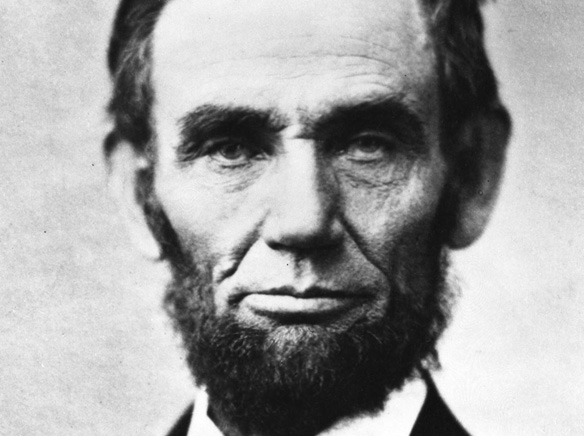If you haven’t seen the Steven Spielberg movie “Lincoln,” I highly recommend it.
“Lincoln” is an excellent film, full of some wonderful performances — especially that of Daniel Day-Lewis, who had the dangerous job of portraying one of America’s more beloved presidents. He had a big hat to fill, you might say.
However, it was the politics of the film which grabbed my attention.
If you haven’t seen the Steven Spielberg movie “Lincoln,” I highly recommend it.
“Lincoln” is an excellent film, full of some wonderful performances — especially that of Daniel Day-Lewis, who had the dangerous job of portraying one of America’s more beloved presidents. He had a big hat to fill, you might say.
However, it was the politics of the film which grabbed my attention.
We tend to place Abraham Lincoln (along with other great presidents) on a fairly high pedestal — just look at the size of his head on Mt. Rushmore, or the grand Neoclassical Lincoln Memorial. The memorial’s Pantheon-esque architecture presents us with a larger-than-life figure who appears to be more demigod than human being.
Of course, the man certainly deserves plenty of praise and admiration. He freed the slaves and led the United States through the Civil War. He kept the United States of America united.
It is no wonder that President Barack Obama considers Lincoln to be one of his heroes.
However, there is a danger to too much hero-worship. It would be easy to imagine that the great man simply walked onto the political stage, said the Gettysburg Address, and with a wave of his hand, wiped away both slavery and the Confederacy.
It was never that easy. We should never forget the struggle.
The movie “Lincoln” wisely focuses on just one of Lincoln’s accomplishments, the fight to get the 13th Amendment passed.
We know how the story ends. We know that slavery was wrong and needed to be ended. This film reminds us of how difficult that task actually was.
People didn’t think that African Americans were equal to other races (and they didn’t use the term African American to describe them). Yes, people really did believe that the Bible supported slavery; that the institution had the blessing of God.
And, people thought that the South’s economy would be ruined if they didn’t have slavery to support it.
The debate sounds vaguely familiar. When I watched “Lincoln,” they were talking about slavery and the 13th Amendment, but I was thinking about such issues as Obamacare, the fiscal cliff and gay marriage. America’s political discussion has moved forward from the 1860s, but the politics remains much the same.
The Emancipation Proclamation was an executive order, same as any other presidential order.
Lincoln relied on lobbyists to get the job done. He negotiated and compromised. Political deals were made. He had to fight people within his own political party. Arguments got heated. People called the president names.
In other words, it was politics as usual. This is not necessary a bad thing.
The film forces us to examine if “the ends justify the means.”
Looking back with the power of hindsight, we know that Lincoln was trying to do the right thing. We know he was right. His opponents didn’t agree.
As long as the United States remains a democracy, we will always have political debate. Great ideas will need people willing to push the nation forward. The right road to take will not always be clear and obvious to everyone. Compromises will be necessary.
As long as there are people pushing backward, forward progress will be made in little steps.
The film “Lincoln” will provide little comfort to those who dislike political debate. But it does serve as an excellent reminder of why it is needed.
James Fujita is a former GVN news editor. He works as a copy editor for the Visalia Times-Delta in California’s Central Valley. Fujita can be contacted at jim61773@yahoo.com.



















